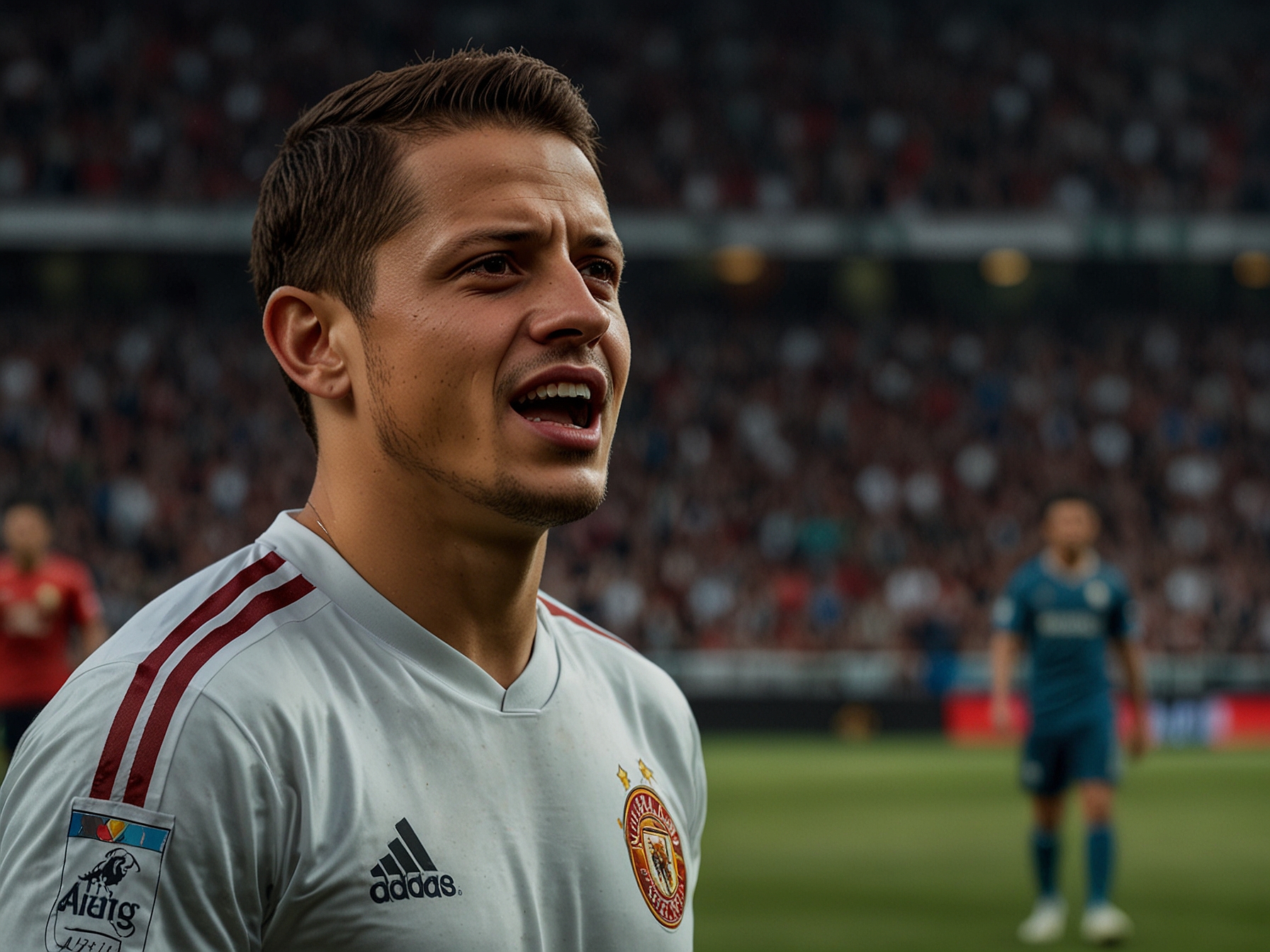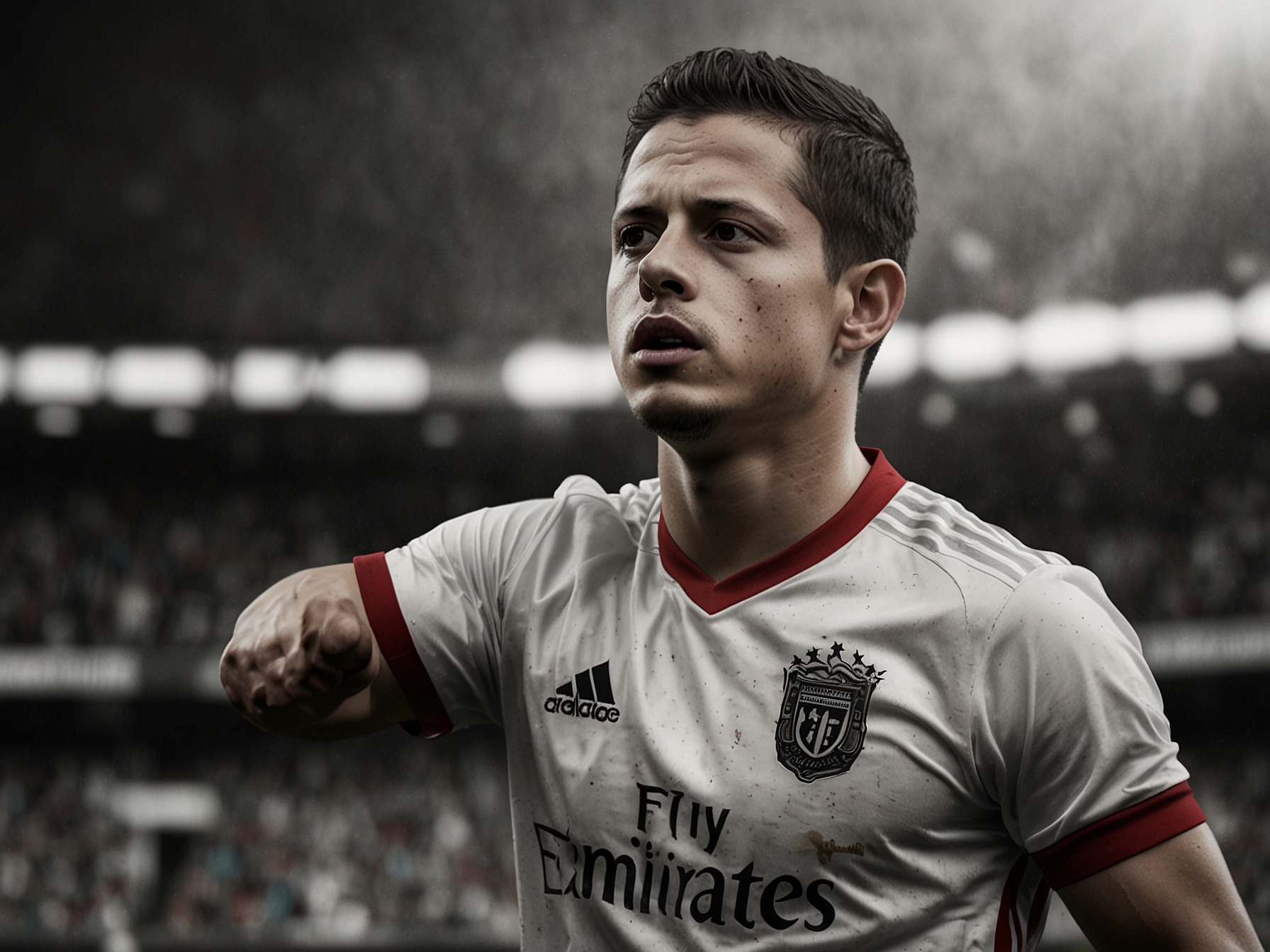In the high-stakes world of soccer, every match can feel like a do-or-die scenario. As teams gear up for playoffs, the pressure mounts. Javier ‘Chicharito’ Hernández, a name familiar to fans, recently voiced concerns about perceived biases in officiating when facing off against Atlas. His candid remarks serve as a rallying cry for his teammates and a reflection of the broader frustrations shared among players and fans alike.

Before the critical Play-In match at Estadio Akron, Chicharito stood before teammates, a leader determined to galvanize his squad. He reminded them of their past challenges, particularly the Clásico Tapatío, where questionable refereeing had played a role. “We must play smart,” he urged, acknowledging that external factors, like unfair refereeing, can loom over the game.
His plea was not just about strategy but also about mental resilience. With emotions raw after a previous loss, Chicharito emphasized the need to push through adversity. “There’s no tomorrow,” he insisted. His words aimed to unify the team, to instill a shared purpose. “If we have to shout at each other, let’s do it. But we give everything we have.”

This call for intelligence and intensity highlights the expectations players carry, not only to perform but also to adapt under pressure. The game against Atlas had proven challenging in the past, especially with contentious calls overshadowing play. In soccer, a team’s mindset can shift dramatically, influenced by internal dynamics and external pressures.
During their last encounter, an incident had ignited debates among fans and analysts alike. Rivaldo Lozano’s controversial involvement led to a goal that left players and supporters alike questioning the officiating’s integrity. Despite the availability of VAR, the decisions made that day cast a long shadow over their hopes for redemption.

Commentators and fans echoed these sentiments across social media platforms. Was the refereeing truly biased, or were players merely seeking excuses for their shortcomings? Such questions swirl in major sports. For Chicharito and the Chivas, navigating these challenges becomes essential not just for their performance but for their identity as a team.
As the Play-In game approached, eyes turned toward the pitch, where intense emotions would play out in real time. Would Chicharito’s words resonate with his teammates? Would they rally together, pushing through both the physical and mental hurdles? Soccer is a game of inches and moments, and each player had a stake in the outcome.
The arena buzzed with anticipation, echoing the fans’ hopes and fears. For many, soccer transcends sport; it’s about community, pride, and identity. The stakes were high, and so was the expectation. Chicharito stood at the forefront, not just as a player but as a symbol of hope and tenacity for his team.
Beyond the numbers and stats, there lies a deeper narrative. The emotional landscape each player navigates can profoundly impact not just gameplay, but also their legacy in sports. Chicharito’s focus on teamwork and resilience reflects a universal truth: that no challenge is insurmountable if approached with heart and intelligence.
As kick-off approached, excitement hung heavy in the air. The watchful fans, the hopeful teammates—everyone was ready for a display of sheer determination and skill on the pitch. Would it be enough to overcome not just the rival team, but the invisible barriers that refereeing could impose? One thing was clear: in this beautiful game, the battle is as much mental as it is physical.




